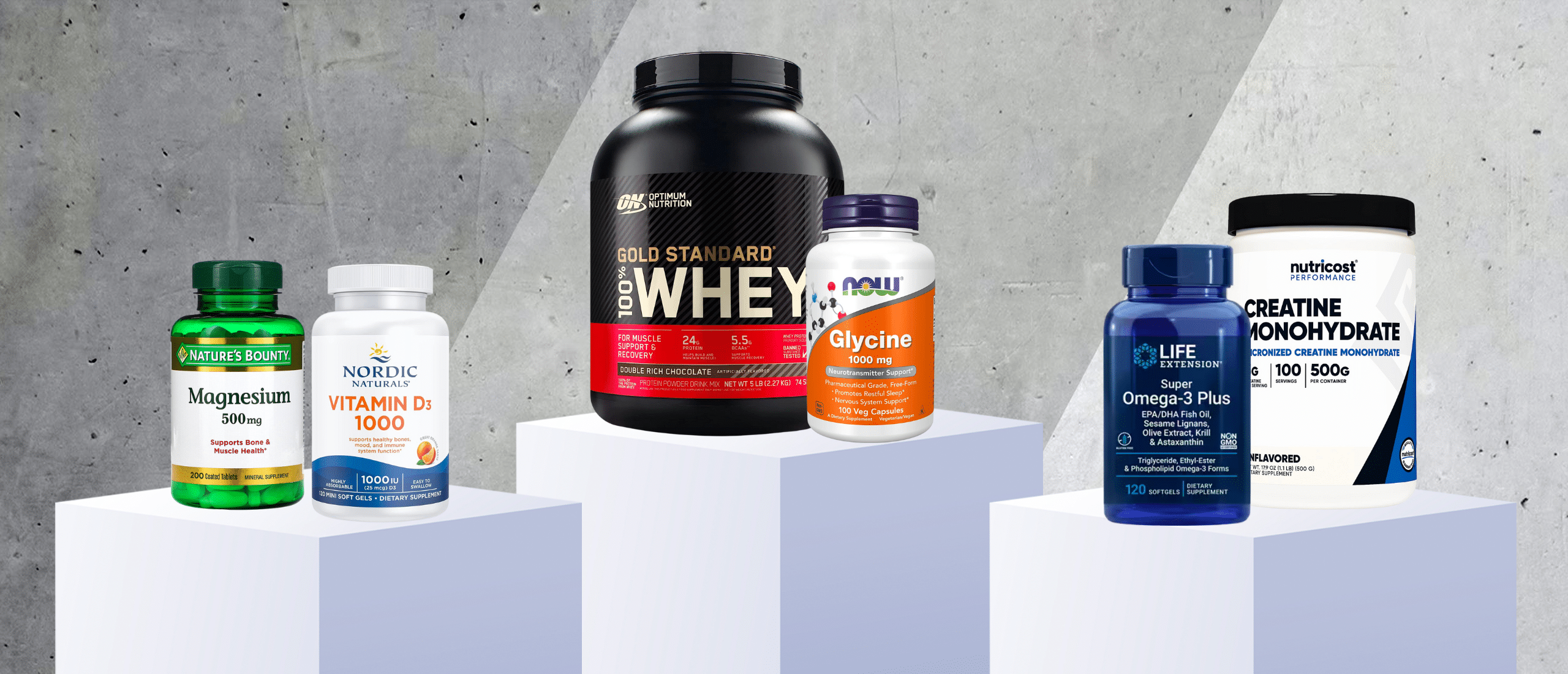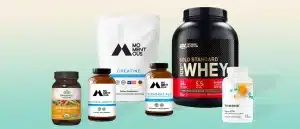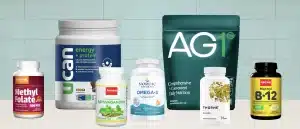Build a Longevity Expert-Approved Supplement Stack for Barely $1 a Day
Getting healthier is expensive. Fancy gym memberships, expensive recovery equipment, exorbitant medical procedures, and the generally freakish cost of healthcare strike fear in the heart of the budget-conscious. And supplements are one of the most intimidating commercial categories. For one, creating a stack can bleed you dry, and if you’re not an expert it can be a challenge to know what’s worth the spend and what isn’t. To make things easier, here are several low-cost—all from 10 cents to under $1 per serving—supplement options backed by longevity experts like Peter Attia, Andrew Huberman, Bryan Johnson, Rhonda Patrick, David Sinclair, and more.
Editor’s note: It’s always wise to seek information on any particular supplement with your primary care physician before buying. Though the vast majority are perfectly safe to take recreationally, everyone is different and some may affect other prescription medications.Your doctor is best positioned to give you personal guidance on the subject.
Omega-3s
You’ll find some form of Omega-3s—ALA, DHA, or EPA—in just about every longevity experts’ supplement stack (like Huberman, Attia, and Patrick). The polyunsaturated fats help fight inflammation, which we know has damaging effects on the body as it ages. Omega-3s also have neuroprotective effects against cognitive decline, dementia, and depression. They even reduce the risk of heart attack or stroke.
Another positive: Omega-3s are widely available and very affordable. They can be bought in their individual forms (remember the ALA, DHA, EPA acronyms) or all together in one pill for less than $1 per serving.
Vitamin D3
Though most longevity experts recommend having your Vitamin D levels tested before supplementing to ensure you’re not potentially overdosing, those same experts almost invariably supplement Vitamin D3 themselves.
Creating a list of the many things Vitamin D supplementation supports is difficult because the nutrient is involved in so much throughout the body, but longevity experts have noted the following as reasons for taking extra: anti-inflammatory properties, muscle support, energy level regulation, decreased cancer risk, antidepressant qualities, and more. There’s even a connection between boosting Vitamin D and increasing testosterone. Nearly as important, Vitamin D3 is incredibly budget friendly—you can get 120 servings of the stuff for nearly $0.10 per serving.
Protein Powder
It’s evident that protein intake supports the building of muscle, which in turn has a significant effect on a person’s healthspan. Thus, boosting your protein intake in an easy, time-efficient manner is generally a good idea (even if you’re not hitting the weight room). Both Peter Attia and Andrew Huberman have discussed their protein powder regimens at length, and it’s evident that it’s best to use protein powder on an as-needed basis (that depends on your diet). Eat a ton of protein during regular meals one day? There probably isn’t a need for your usual protein shake. One thing both longevity experts have said, though: target protein powders that are as low in fat and carbs as possible as to avoid adding too many non-protein calories to your diet.
Protein powders are available at a number of price points, but you can keep things simple by shopping well-known brands that are often priced at as little as $0.50 per serving.
Magnesium
If your diet is low on greens, nuts, seeds, beans, and whole grains, you’re probably low on magnesium. There’s evidence that low magnesium levels can have a less-than-ideal effect on learning and memory, as well as play a key role in the feeling of “brain fog,” or when basic mental functions seem harder than they should.
There are several types of magnesium, but most longevity experts tend to supplement with just a couple—magnesium L-threonate and magnesium chloride. The former has shown that it may help with cognition and improve sleep (it makes an appearance in Huberman’s famed “Sleep Cocktail”), while the latter boosts potassium and sodium levels in your cells (which is why it’s often heavily featured in sports drinks and hydration powders).
You can find magnesium supplements of all types for well under $0.25 per serving, too.
Creatine
Creatine is one of the most research-supported supplements a person can buy. It is ergogenic, which is a fancy way of saying it boosts your workouts.This can have a number of positive effects on your body depending on the kind of exercises you’re getting up to (it’s shown to increase positive outcomes for everything from powerlifting to heavy cardio work). More recent research has begun to suggest it’s useful even for your brain. And before you ask: no, it’s not going to make you fat.
And guess what? You can buy it for as little as $0.25 per serving. Unlike some other supplement categories (like protein powder), the brand really doesn’t matter at all—creatine monohydrate is pretty much always the same.
Glycine
Glycine is one of the most-recommended non-melatonin sleep aids and it’s especially popular with longevity experts like Peter Attia and Andrew Huberman. It’s an inhibitory neurotransmitter that helps calm your central nervous system and get you to a sleep-ready state, sooner. Longevity experts have acknowledged that clinical studies (AKA human studies) on glycine’s effectiveness are still new, but things are promising.











